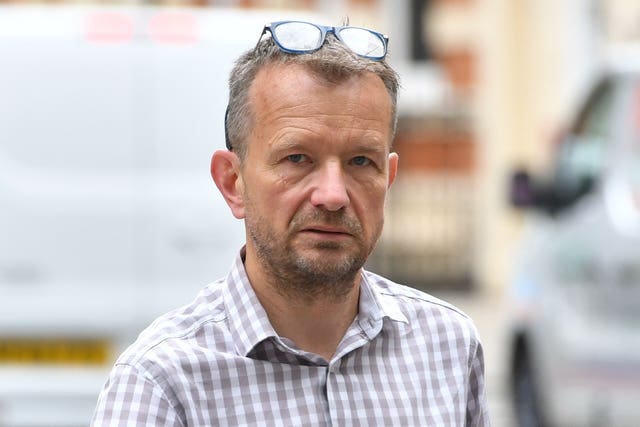BBC boss told of Jewish community’s outrage over Hamas language
The corporation said it is "committed to continued dialogue" following Friday's meeting, at which the Board of Deputies said the BBC was "left in no doubt as to the strength of feeling in the Jewish community". BBC director general Tim Davie met Board of Deputies president Marie van der Zyl and its chief executive Michael Wegier. The Board of Deputies, which describes itself as the voice of the Jewish community in Britain, said the BBC had confirmed it is no longer the corporation's practice to call Hamas militants, but instead is describing the group as a proscribed terrorist organisation by the UK Government and others, or simply as Hamas.
Following the meeting, Ms van der Zyl said: "We emphasised our outrage at the refusal of the BBC to describe Hamas's barbaric actions as terrorism and the damaging, false report of the rocket which killed innocent civilians. We will both continue dialogue as well as pursuing legal avenues." Mr Davie said: "I would like to thank Marie van der Zyl and Michael Wegier for the meeting today.
The BBC is committed to continuing dialogue through this period." In a statement the corporation further explained its policy on language, adding: "The BBC regularly meets a range of groups and today met the Board of Deputies of British Jews. During the meeting we confirmed that we will continue to refer to Hamas as a proscribed terror organisation by the UK Government and others.
"What the BBC does not do is use the word terrorist without attributing it, nor do we ban words. We also confirmed that for some days we had not been using 'militant' as a default description for Hamas, as we have been finding this a less accurate description for our audiences as the situation evolves." The meeting followed an admission on Thursday by a senior member of staff at BBC News that the corporation made a "mistake" while covering a hospital bombing.
 Deputy chief executive of BBC News, Jonathan Munro, said the broadcaster's 'language wasn't quite right' during live reporting of the Gaza hospital hit (Dominic Lipinski/PA)
Deputy chief executive of BBC News, Jonathan Munro, said the broadcaster's 'language wasn't quite right' during live reporting of the Gaza hospital hit (Dominic Lipinski/PA)
Hamas has blamed an Israeli air strike for the attack on Tuesday, while the Israeli military said al Ahli hospital was instead hit by a rocket misfired by Palestinian militants.
At the Media Society's reporting the Israel-Hamas conflict event on Thursday, deputy chief executive of BBC News Jonathan Munro said the broadcaster's "language wasn't quite right" during live reporting. He said the correspondent covering the strike had been "wrong to speculate about the cause of the explosion of the hospital". Mr Munro added: "At no stage did he actually say it was caused by the Israelis... but nonetheless, when the impression is left that we've speculated, (it) is important to correct that which we've done."
Meanwhile, it has emerged Mr Davie is set to address the next meeting of the 1922 Committee of the Conservative Party on Wednesday. The PA news agency understands it is a "routine parliamentary engagement and is not connected to recent events regarding the Israel-Gaza conflict". Sir Graham Brady, chairman of the influential backbench committee, said: "It was arranged several weeks ago, before the terror attack on Israel."
He pointed out that non-political speakers do "occasionally" address the body of Tory MPs, with Bank of England governor Andrew Bailey and Microsoft co-founder Bill Gates among those to have made appearances at the 1922 in the past.
It comes as the broadcaster continues to face questions over its editorial policy on Hamas, with several Cabinet ministers - including Defence Secretary Grant Shapps - criticising its editorial guidelines in recent weeks.